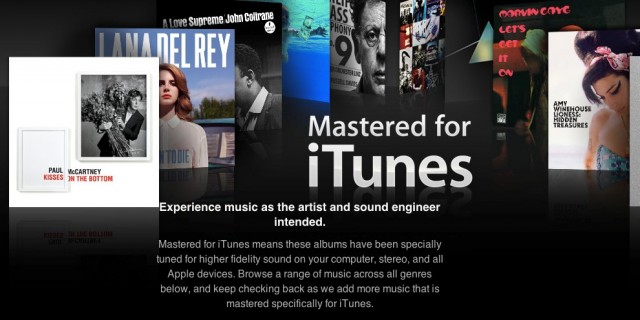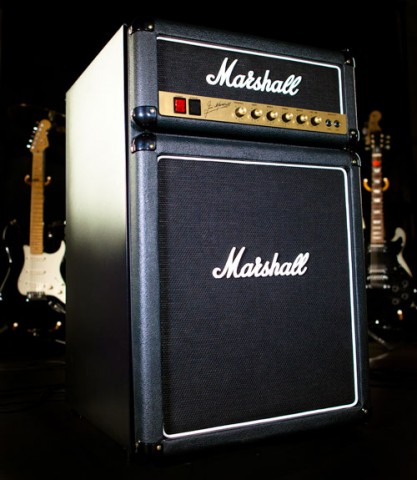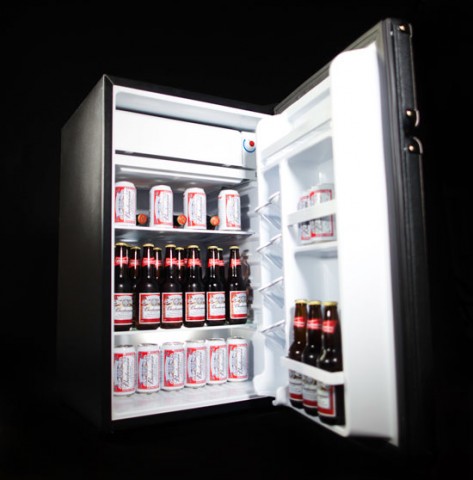March 22, 2012
Written by Jim Dalrymple
Adam Satariano for Bloomberg:
To many, the incident showed Consumer Reports is now chasing page-views on the Web instead of actually doing a public service.
Satariano quoted me, Marco Arment and MG Siegler.
Written by Peter Cohen
Meghan Keneally for The Daily Mail:
There is still an aura of mysticism that remains around that fateful ship and new photos that will be published in the April 2012 edition of National Geographic Magazine provides for the first time a sense of what the wreck looks like today.
The images included on the page are breathtaking – it gives you a sense of the wreck that you’ve never seen before. The April issue of National Geographic will be one for the archives, that’s for sure.
Written by Jim Dalrymple
The following pie chart and table is based on the number of Android devices that have accessed Google Play within a 14-day period ending on the data collection date noted below.
Collection date was March 5, 2012.
Written by Jim Dalrymple
This update provides the following new features, fixes and improvements:Mid/Side Splitter: Split the signal into mid and side channels for a whole new approach to stereo processing.Global Sidechain: This global component applies sidechaining to the whole signal chain. Essential for frequency-specific compression and more.Favorites Tab: Fast access to the components you use most. This new tab automatically groups the components and presets you use regularly.New Demo Mode: Just drag the effect you want to try into your rack and take it for a spin. No re-starting, no need to change modes.
Guitar Rig is one my favorites.
Written by Peter Cohen
For some folks, Wi-Fi isn’t the optimal solution – you want a wired network because it’s faster, safer and don’t want to deal with the problems associated with wireless. How do you wire up an existing house without making it look like crap, or doing it wrong?
Writing for TechNewsWorld, Patrick Nelson offers some practical advice for tips you can learn from the pros on how to create an elegant, adaptable and workable wired environment.
(Via LifeHacker)
Written by Peter Cohen
Mobile World Live’s Matt Ablott has posted an interview with Sprint CEO Dan Hesse in which he talks about the company’s decision to sell the iPhone. Hesse noted that iPhone sales have exceeded Sprint’s expectations. And four out of every 10 iPhones sold by Sprint are to new customers, roughly double the rate of AT&T and Verizon – implying that Sprint is taking customers away from the competition.
Hesse also addressed analysis that Sprint and others pay heavier-than-typical subsidies to sell the iPhone. He said that iPhone customers are more profitable than others because there’s lower “churn” – the term the industry uses to describe the rate at which customers leave services over time. Hesse added that Sprint iPhone 4 users are using less data on average than high-end Android 4G device.
(via BGR)
Written by Peter Cohen
Jim and I were Gene Steinberg’s guests for the March 17th edition of the Tech Night Owl Live podcast and radio broadcast. Also present was Daniel Eran Dilger of AppleInsider and Roughly Drafted fame. We were all on individually, so there were no pillow fights.
Remember yesterday when an iPad user watched hours of video and was surprised when his data allotment ran out? Today, I bring you another tale of woe.
USA Today writer Ed Baig (he’s the one that complained the iPad still doesn’t have Adobe Flash) said he burned through his 2GB data allotment in less than 24 hours. Baig said he used up his 2GB data plan “downloading a number of the apps that I had already purchased.”
With a 50MB download limit set by Apple for data connections, Ed would have to download 41 apps at 50MB each to reach his limit. I looked through some of the more popular iPad apps on the App Store and it seems like 20MB would be a decent average app size. That means you would have to download more than 80 apps to hit the limit.
That’s certainly possible, I guess. But there’s one thing to consider here. You know you have a data allotment, so if you use it up downloading apps or video, why is that Apple’s fault? Let’s look at the math.
2GB data – 2GB video downloads = no data left 2GB data – 2GB app downloads = no data left
To simplify:
2GB data – 2GB downloading anything = no data left
Like the Wall Street Journal yesterday, USA Today’s headline blazed “New iPad’s speedy 4G can use up data allotment in a flash,” but it’s not the iPad. Any device using 4G is going to be the same.
Any user with a 2GB data plan that downloads 2GB of data is going to run out.
Written by Jim Dalrymple
Bloomberg:
Microsoft Corp. (MSFT), the world’s largest software maker, said its Windows Phone operating system will propel it past Apple Inc. (AAPL) in China’s smartphone market as its partners release devices costing as little as $158.
Microsoft is losing its mind. Maybe they’ll hold another mock funeral for the iPhone because that worked so good for their iPod strategy.
Written by Peter Cohen
Kottke.org:
The long periods of silence by Mike Daisey were among the most compelling parts of the most recent episode of This American Life…you know the one. Michael Sippey edited together the silences into one glorious clip, the best audio of silence since Cage.
I am standing up and clapping. (via <a href=””http://www.joeydevilla.com/2012/03/21/the-silence-of-the-weasels-or-the-silences-from-that-incredibly-awkward-mike-daisey-interview-on-this-american-life/” target=”_blank”>Joey deVilla)
Written by Peter Cohen
Myke Hurley and Terry Lucy on The Bro Show invited David Caolo from TUAW and 52Tiger.net and me for their 100th show. We dished on Mike Daisey and other nibbly bits of ephemera from the Apple blogosphere.
I’ve been listening to quite a few new tracks from iTunes under Apple’s new “Mastered for iTunes” program. This is something Apple voluntarily started to help improve the audio quality of the music we download from iTunes. From my perspective, it’s great, but Apple has received some self-indulgent criticism in some circles.
For instance, a Web site in the UK wrote an article refuting claims that Mastered for iTunes sound quality was comparable to CDs. The Web site even went so far as to make a video using null testing to prove its point.
Here’s the problem. Apple never said that Mastered for iTunes was CD-quality at all. The Web site later updated its posted admitting that one of its commenters, not Apple, made the comment about CD quality.

From what I can see, Apple only wants to provide the highest quality audio it can. What can possibly be wrong with that? The simple answer is nothing.
Here’s what Apple’s mission is in the Mastered for iTunes program as I understand it.
Provide better quality audio to its customers
Give mastering engineers tips and tools to submit the best quality audio possible to Apple
Make sure that audio professionals are optimizing content for the digital medium.
Apple is now accepting high-quality masters from engineers because its new encoders can preserve more dynamic range, resulting in better quality music for the consumer to download.
Mastering engineer Bob Ludwig (Coldplay, Bruce Springsteen, Nirvana, Soundgarden) told me that Apple spent 18 months investigating how to make the AAC encoder better. The results, he says, are “a great thing.”
Ludwig explained that in the past, AAC songs were ripped from 16-bit CDs, but now Apple can handle higher resolution files. In fact, Apple says an ideal master will have 24-bit 96kHz resolution, but sample rates of 48kHz, 88.2kHz, 96kHz, and 192kHz can also benefit from the encoding process.
The creative part of the mastering process hasn’t changed one bit with the Mastered for iTunes program. Ludwig said he masters his music exactly the same way. The change comes after the creative process is finished — that’s where Mastered for iTunes comes in.
Instead of sending it to CD and then having the AAC files ripped from that, mastering engineers can now use Apple’s tools to create custom AAC files from the high-resoultion master.
Apple even documents the trend towards louder mastered music, commonly referred to as “the loudness wars” and offers tips and advice. With music being so loud these days, running a song through any encoder will often cause clipping — it’s the nature of encoders. However, one of the tools Apple provides to engineers allows them to check the AAC files for clipping and then make adjustments before the songs are sent to iTunes.
Some people think that mastering for a digital format is silly, but it’s downright stupid to ignore iTunes. Apple is the largest distributor of music and if you don’t think that improving the quality of your music for millions of people, then you don’t really care about your fans.
As a musician and a music lover, I’m in favor of any process that captures more dynamic range of the music I’m going to buy. It’s a good thing for everyone involved, but most especially for the consumers that purchase and listen to the music.
Engineers and musicians should embrace better-quality digital music, not fight about frequencies and philosophical differences in the process. Your customers will thank you for it.
Social gaming powerhouse Zynga has purchased OMGPOP, the independent developer behind the hit mobile game Draw Something.
Draw Something, available for iOS and Android, combines the fun of Pictionary with social gaming. You and friends or complete strangers take turns guessing a word by looking at drawings you’ve made. It runs on phones and tablets, and is particularly fun on the iPad.
Dan Porter, CEO of OMGPOP, told players of Draw Something not to worry.
“Nothing’s changing and now all the features you want — chat and sharing and galleries and more – will come even faster. Thank you for everything. And to all future players, you are going to love the things that OMGPOP and Zynga are cooking up together.”
Written by Jim Dalrymple
The original petition is based on the testimony of Mike Daisey which has been shown to be primarily fabrications and fantasy. The power and efficacy of Change.org is diminished by allowing petitions that are based on lies.Apple is already doing more for worker rights in China than any just about any other IT company that deals with Chinese suppliers and they have been acting responsibly since well before anyone else took notice.
I kid you not people, this shit just writes itself.
Written by Jim Dalrymple
Mail Online:
Microsoft’s upcoming Windows 8 operating system might have a new look – but it certainly has something in common with previous versions of the operating system.During a demonstration of the new ‘Metro’ tablet control system, a demonstration unit ‘froze’.
Giving users a taste of what they’re in for.
Written by Jim Dalrymple
Arnold Kim:
Mobile analytics company Flurry reports that activation of new iOS and Android devices in China has surpassed the U.S. for the first time.
We all knew this was going to be a huge market.
Apple told me today that its newest iOS app, iPhoto, hit 1 million users in less than 10 days after its release. It’s important to note that figure is users, not downloads. It’s quite possible that one user downloaded the app multiple times, but Apple isn’t counting those, only the unique users.
iPhoto was introduced during Apple’s iPad event earlier this month. The app allows users to manipulate photos and share them with friends and family.
iPhoto is available from the App Store and costs $4.99.
Written by Jim Dalrymple
In this in-depth video, Apollo Product Manager, Lev Perrey, explains the three main sections and all features found within the Apollo High-Resolution Interface’s companion Console Application. Topics covered include the Input, Aux, and Monitor Sections — as well as inserting/removing plug-ins, resizing the window, setting up dedicated headphone mixes, and more.
I can’t wait to start using this.
Written by Jim Dalrymple
Webdesigner Depot:
As developers, we have our own set of misguided beliefs about a certain technology, but as we begin to use that technology we are able to understand what it is all about, its usage, and its scope.
If it can be done on HTML5, then I’ll consider it.
Written by Peter Cohen
Vlad Bobleanta for Unwired View:
Which is exactly what Nokia wants to do, proposing the application of tattoos with ferromagnetic inks, that will vibrate based on commands from your phone.
I’ve thought a lot about getting inked lately. I’m not sure how comfortable I’d be with having my tattoos vibrate. Guess it all depends on where I’m getting the ink, though.
(via the Los Angeles Times)



